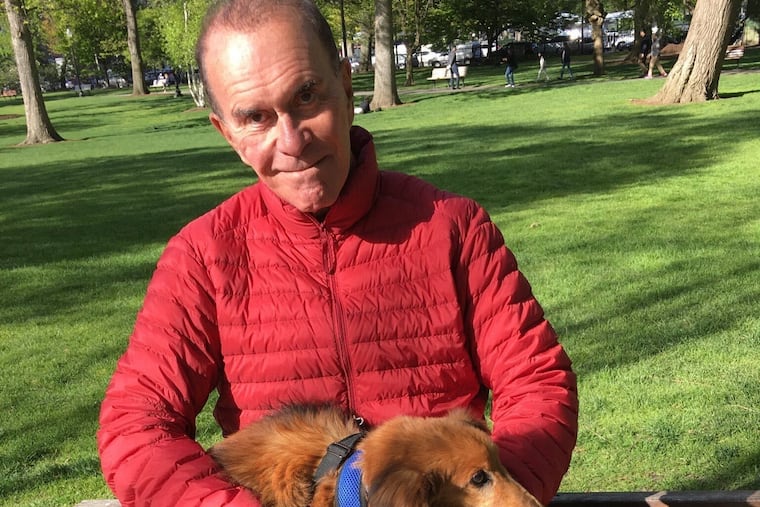Richard Wurtman, pioneering neuroscientist and Central hall of famer, has died at 86
For more than four decades, he taught and conducted groundbreaking research in neuroscience at the Massachusetts Institute of Technology.

On his first day at Central High School, Richard Jay Wurtman listened patiently as a teacher explained the history of the storied Philadelphia magnet school.
On his second day, his longtime friend Harman Spolan recalled, the teacher launched into another speech on the school and its illustrious graduates. At that, a 14-year-old Wurtman raised his hand. “When can we start to work?” he asked.
“That was Dick,” Spolan recalled, laughing. “He just wanted to get down to it and get it done.”
That work ethic, friends and family said, was one of Dr. Wurtman’s defining characteristics, and it served him through a storied career in medical research. He went on to graduate first in his class at Central, attended the University of Pennsylvania, and studied medicine at Harvard Medical School. For more than four decades, he taught and conducted groundbreaking research in neuroscience at the Massachusetts Institute of Technology.
Dr. Wurtman, 86, formerly of Philadelphia, died Tuesday, Dec. 13, from complications of pancreatic cancer at his home in Boston.
Dr. Wurtman grew up in Logan, a Philadelphia neighborhood surrounding North Broad Street, and, though he spent much of his adult life in Massachusetts, never forgot his Philadelphia roots. As a child, he was an avid piano player — though he preferred to play by ear instead of read music — and, in high school, spent Friday afternoons in the discount seats at the Academy of Music, listening to the Philadelphia Orchestra.
He graduated from Harvard Medical School in 1960 and trained at Massachusetts General Hospital before a stint at the National Institutes of Health, MIT officials said in an obituary posted on the school’s website.
He began work at MIT in 1967, launching a neurochemistry and neuropharmacology department as part of the school’s Department of Nutrition and Food Science. He also worked at the school’s Department of Brain and Cognitive Sciences and directed NIH’s Clinical Research Center at MIT, the school said.
Among his most pioneering accomplishments was research that led to the discovery that the hormone melatonin regulates sleep, the school wrote.
“It was his most cherished discovery,” said his wife, Judith Wurtman, the former director of MIT’s Program in Women’s Health. She and her husband often worked together, and co-authored several papers.
The Wurtmans’ research focused in part on how neurotransmitters like serotonin affect mood and food cravings; they found that people who craved carbohydrates may be experiencing a lowered dose of serotonin, Judith Wurtman said.
Dr. Wurtman was also involved in the development of the weight-loss drug dexfenfluramine, sold as Redux. The drug was later pulled from the market after patients who took it in combination with an older weight-loss drug, phentermine, reported damage to their heart valves.
Two years after Redux was pulled, Dr. Wurtman conducted research himself on the so-called “fen-phen” drug combination, stressing that he had no plans to return Redux to the market. Instead, he told the New York Times, “if something that I had a part in inventing as a scientist turned out maybe to be dangerous to people, then I’d be obligated to spend a little time trying to figure out what was going on.”
Later in life, Dr. Wurtman researched Alzheimer’s disease, and helped develop a liquid dietary supplement intended to limit the progression of the disease. The yogurt-like drink, called Souvenaid, is made by Nutricia Advanced Medical Nutrition, a subsidiary of the French company Danone. It’s sold commercially in Europe and the United Kingdom but is not currently available in the U.S.
The Wurtmans raised two children, Rachel and David. His wife said he was devoted to both them and his grandchildren: “The conversation was always directed toward them. It was always, ‘What are you doing? Tell me about your work, your school, your boyfriends,’ ” she said.
He was equally protective of his students and colleagues, she said, making sure to credit students’ work in his own research, and championing women scientists at a time when they weren’t often welcome in labs, Judith Wurtman said.
In his spare time, he continued to cultivate a love for music, supporting the Boston Symphony Orchestra as a member of its advisory board and serving as a trustee for Miami Beach’s New World Orchestra.
Through his long career, Dr. Wurtman never forgot his roots, his wife said. “He went to Penn and Harvard and interned at Mass General — a very prestigious place — but his most beloved time was at Central. His closest friends were from Central. He would talk about it incessantly,” she said. In 1995, he was elected to the school’s hall of fame.
In addition to his wife and children, Dr. Wurtman is survived by three grandchildren.